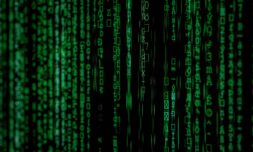Last week, rapper and musician Noname released her second studio album, ‘Sundial’. Jay Electronica features on the third track ‘balloons’, spouting antisemitism. Noname has responded saying that listener disappointment doesn’t faze her.
Chicago rapper and poet Noname released her second studio album ‘Sundial’ last week. She has received sizeable criticism for her inclusion of an antisemitic verse by Jay Electronica.
Known for her jazzy instrumentals and neo soul influences, Noname is considered a significant artist within Chicago’s hip hop scene. She found widespread success in 2016 with her debut mixtape ‘Telefone’ and is part of a musical group called Ghetto Stage. This is a trio between Noname and two fellow artists, Saba and Smino.
Following her 2018 album ‘Room 25’, she would go on to create the Noname Book Club, which focuses on and discusses uplifting texts by POC voices.
However, despite her commercial and critical success, Noname has been at the centre of several controversies since 2019. Toward the end of that year, she said she was ‘considering quitting music’ and felt frustrated that her fanbase was predominantly white. She also engaged in a back-and-forth with J Cole following criticism of her in his track ‘Snow on tha Bluff’.
With the announcement of Noname’s third record ‘Sundial’, she once again faced pushback from both listeners and the wider music industry for including a feature from notorious antisemite Jay Electronica. She posted a series of tweets defending his inclusion before deleting her Twitter account two days later. Upon the album’s release, Jay’s verse on the third song ‘balloons’ was widely scorned for being antisemitic and ‘hateful propaganda’.
Noname’s response was blunt and concise. She wrote in an Instagram story that she was ‘not going to apologise for a verse I didn’t write’, also adding that any disapproval ‘truly means absolutely nothing’ to her.
Noname’s response to antisemitism criticism (via Instagram)
“I’m not going to apologize for a verse I didn’t write… your disappointment truly means absolutely nothing to me” pic.twitter.com/rd13CJXbLU
— SP DOOM (@spowell100) August 13, 2023




















